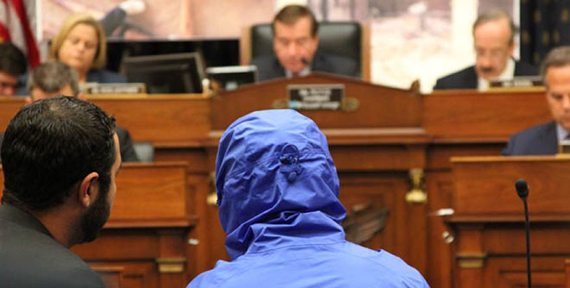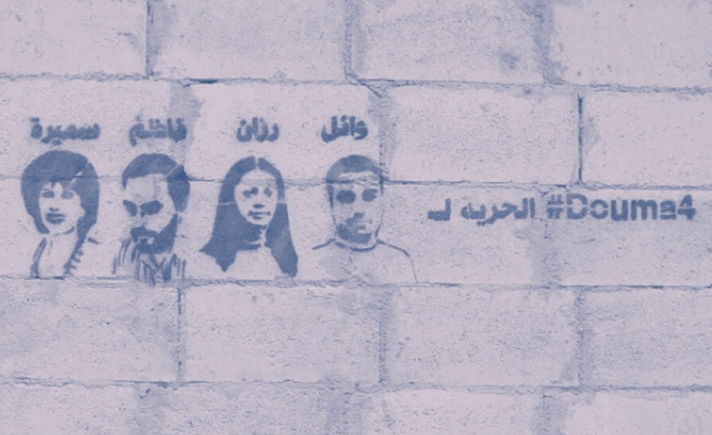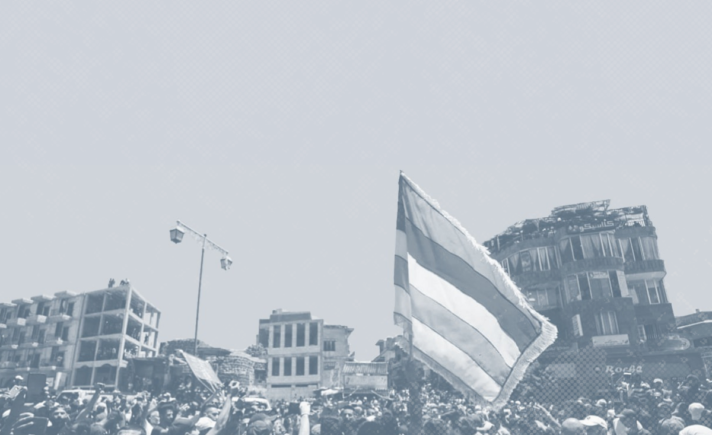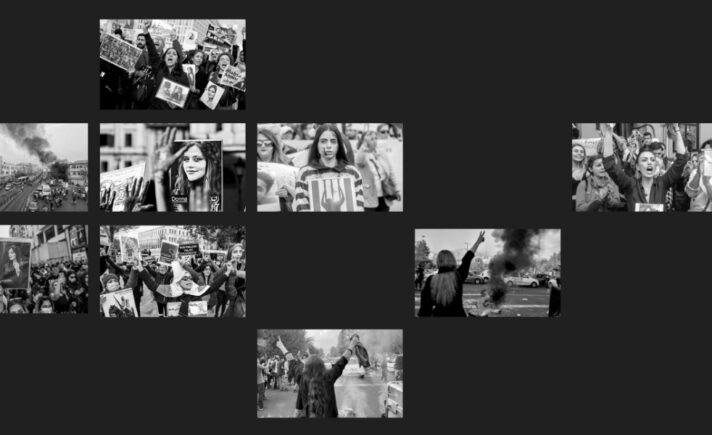If we were to consider the current position of the Syrian government, which has so far refused any political resolutions to the conflict and prefers a clear military win, we are unlikely to reach any approach that leads to the enforcement of the ‘Law and Judicial Security’ through negotiations, especially not without any tangible changes in the power balance on the ground. In light of this dynamic, any real progress to be achieved when it comes to war crimes committed during the conflict in Syria will require a scenario independent from the political process to achieve peace.
Nonetheless, there are, in theory, four main mechanisms that could be applied in order to achieve justice in Syria in regards to allegations of war crimes:
The first mechanism, which is applied in any country in the world, involves a Syrian court that would look into these violations as they are considered to be local in nature; the second mechanism would be an International Special Tribunal, similar to the one that looked into the war crimes committed in former Yugoslavia; the third would involve the International Criminal Court (ICC) and the fourth would involve a national court with international jurisdiction.
However, the employment of any of these mechanisms faces obstacles, as so far, three out of four have failed to achieve any progress. There remains one mechanism which has been used in trials in many countries.
Disabled Mechanisms
The first possible mechanism, in theory, is the national courts, which rarely look into war crimes, but nonetheless, trials on this level are possible. This scenario is somewhat similar to the one applied during the trial of Saddam Al-Hussein in Iraq and the trials of Islamic groups in Bangladesh after the war for independence. However, investigations into war crimes in Syria through local judiciary systems is impossible at this time.
On one hand, these courts are unable to function under the chaotic political and security circumstances in the country, as the local judiciary requires political and law stability. On the other hand, the Syrian judiciary is far from neutral, given its loyalty to the regime, which makes it almost impossible to investigate war crimes. It is no secret that justice and trials through national trials is brought by the winning side of any war.
The trial of Seif Al-Islam Al-Qaddafi provides an interesting example of the first mechanism because despite the ICC’s issue of a Memorandom for Trial, Seif Al-Islam will be tried in Libya. If the Assad regime was to completely collapse, Seif Al-Islam’s trial will be used as a prime example of what justice could look like in Syria through a national judiciary.
The second mechanism would be an International Special Tribunal, which some parties, including the United States, are demanding. The Tribunal would be similar to those that have taken place in Rwanda and former Yugoslavia, and would involve mass trials. The two examples mentioned above were only possible after the end of the conflict and with an international auspice. This means that unlike the national judiciary, an International Special Tribunal is unlikely to see the light of day before the end of the conflict in Syria, which makes considering this option futile at the present. In addition, these tribunals are established to look into war crimes in one conflict, and its establishment depends on a clear decision from the Security Council. This means that these tribunals are highly politicized, and are subject to a Vito by a permanent member.
The third disabled mechanism is the International Criminal Court (ICC), and continues to be disable since Syria is not one of the signatories on the Rome Statute unless the decision comes from the Security Council.
If we were to consider Russian’s pro-Assad position, and that of China to a lesser degree, the Security Council is unlikely to grant an approval for investigations into war crimes in Syria. This has led the Security Council to spin in a vicious cycle, given that the ICC has no practical jurisdiction to look into violations committed by the Syrian regime.
Even though the notorious case of the “Caesar files” was presented to the International Security Council –a file that included samples of the war crimes which the ICC could adopt- the objection from permanent members led to no actual investigation into these allegations. Nonetheless, Human Rights Watch and other organizations are still pushing towards employing the ICC as a best option to try parties responsible for war crimes in Syria.
National Courts with International Jurisdiction
It is evident that the most effective mechanism to investigate war crimes in Syria is National Courts with International Jurisdiction. These are trials that take into consideration geographic concepts of states and practice their power in accordance to the Universal Jurisdiction.
Most foreign governments are immune to trials under the Sovereign Immunity principle, but for the United States, all countries listed as countries that sponsor terrorism are excluded from the Sovereign Immunity principle, which means that they could be tried in American civil courts. The list only includes three states, and Syria is one of them.
An example of the practical application of this law was the case of American journalist Mary Colvin, who was killed in Syria in 2012 by government forces.
The nature of the case meant that verdict would only involve monetary compensation, and therefore no one involved in the case can be jailed, even if the person was present on US territory. This makes the verdict symbolic, rather than practical.
In France, the images which composed what is now known as the “Caesar Case” gave a base to initiate a trial in a local French court. Despite none of the victims being French nationals, the court used the International Jurisdiction principle to investigate the case.
France applied this law in 2010 to investigate all actions considered to be crimes under the Rome Statute that disable the principles of the International Criminal Court. However, there are four conditions to be met in order to apply the International Jurisdiction in France.
For example, in cases involving torture, the suspect must be present in France at the time of the allegations, as for genocide and other crimes against humanity, the suspect must at least be a French resident.
If we were to consider the absence of any tools to arrest the accused, we see that the French tribunals have very little authority to apply its verdicts. An accused can only be taken to court if he/she was on French land, and only if the accusations against them are stated in the Rome Statute.
The recent case of Mazen Sabbagh presents an example of International Jurisdiction, since it involved two people with double citizenships (French – Syria). Since this case involved allegations of torture and other crimes against humanity, and are stated in the Rome Statute, French courts can apply the International Jurisdiction principle if all four conditions were met, similar to the “Caesar Case”.
What makes this case stand out among other trials taking place in European countries such as Sweden and Germany is that it is mainly concerned with trying the Syrian regime, while most other cases revolve around trying Jihadi individuals or small armed groups for war crimes committed by them, both individually and collectively.
One of these cases involved a man who published images of himself with decapitated heads of members of the Syrian government forces. The common factor in those who are undergoing these trials is that they were all present on German and Swedish land during at the time of allegations.
When it comes to evidence necessary for these trials in the United States, it is far less than that needed for any ordinary criminal cases, as the judge only requires logical evidence which proves that possibility of the crime having been committed is higher than the possibility it hasn’t.
It would be naive to see this lenience in demanding evidence since none of these civil tribunals, at which verdicts are merely monetary, will lead to anyone’s arrest.





